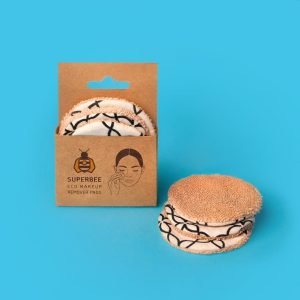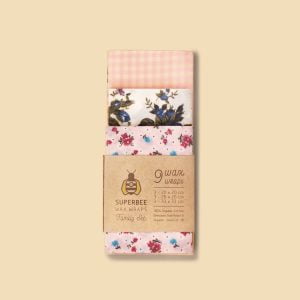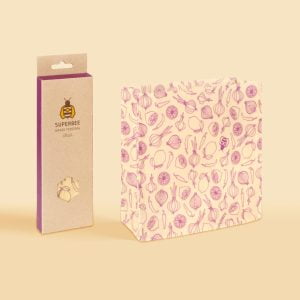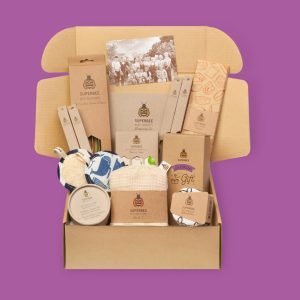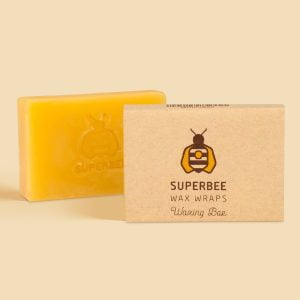Dryer balls vs dryer sheets: which is better for you, your laundry, and the planet?
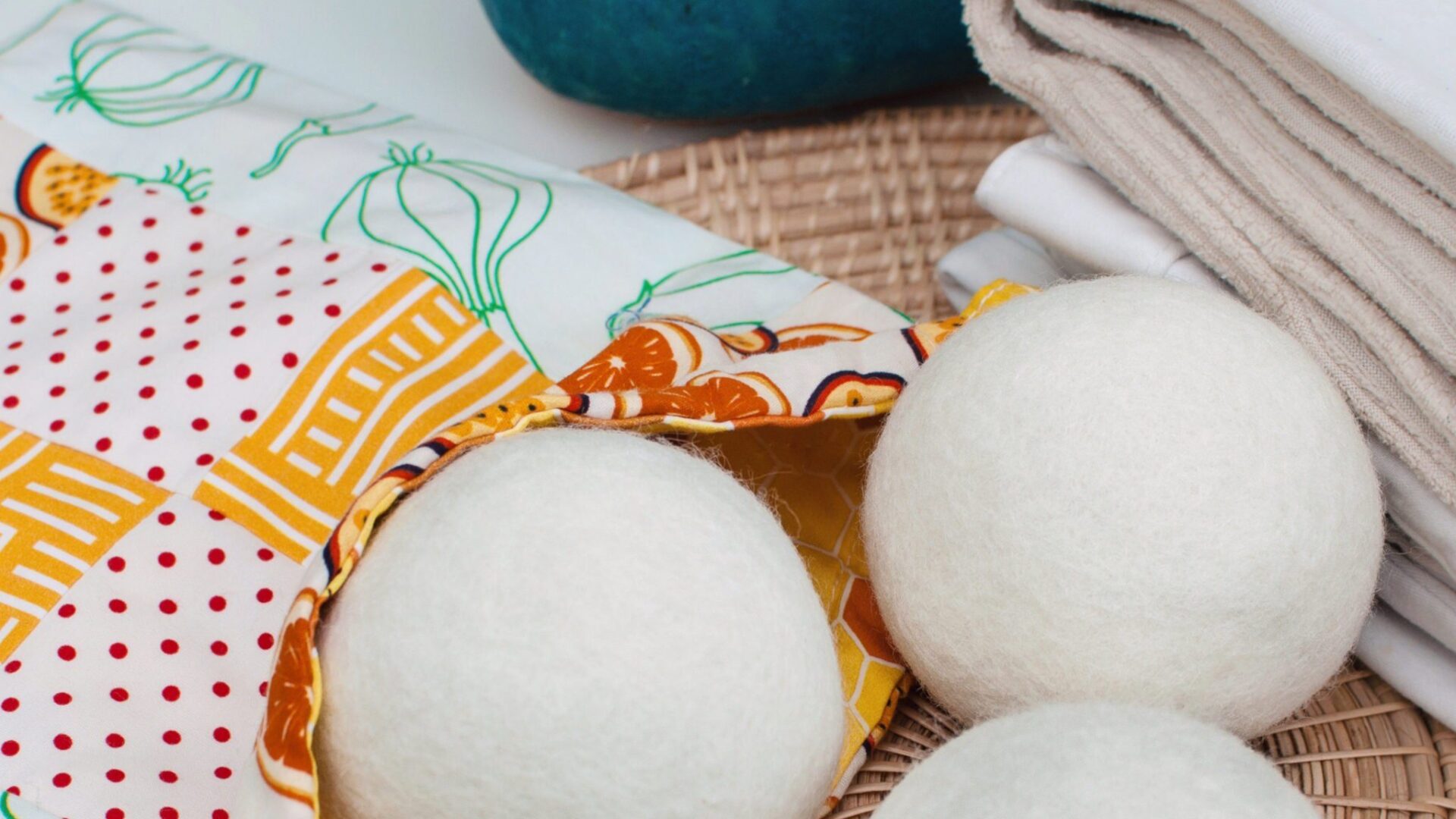
Who doesn’t love the feel of warm, softened, and fragranced laundry, straight from the tumble dryer? But have you started to worry about the environmental impact of the thousands of chemically-infused dryer sheets that you’ve used across the years — and their impact on your family’s skin, too?
It’s no secret that dryer sheets aren’t doing any good for the planet. Made from nonwoven polyester fabric, which is then covered with the chemicals used to soften your laundry and reduce static, they’re single-use items, which means you throw them directly into the trash once they have served their purpose. But what exactly is their environmental impact, and is there an alternative?
Dryer balls have become an increasingly popular eco-alternative to dryer sheets. But if you’ve never used them before, you might be puzzled by how they work and what the actual benefits are when you compare them with your trusty old dryer sheets. So: dryer balls vs dryer sheets. Which is actually better for you, your laundry, and the planet?
What do dryer sheets do?
Dryer sheets are thin pieces of polyester – or in some cases, paper – that have been treated with a chemical fabric softener and fragrance. When they’re heated in your tumble dryer, they will transfer this softness and fragrance over to your clothes.

What’s more, they can help to reduce static in your tumble dryer. Scientifically speaking, clothing inside your dryer contains negatively charged ions because of loose electrons, while the fabric softener in the dryer sheet is positively charged. When they meet, they cancel each other out, reducing static, and, most importantly, stopping your clothes from coming out of the dryer wrinkly.
So why should we be concerned about dryer sheets?
While dryer sheets do undoubtedly leave your clothes feeling soft and smelling fragranced, as single-use products made from nonwoven polyester, they’re some of the worst offenders when it comes to environmental impact.
Any type of plastic requires fossil fuels to make it – and fossil fuels release deadly greenhouse gasses, which are huge contributors to the climate emergency. What’s more, they are neither biodegradable nor compostable; in fact, plastic takes hundreds and hundreds of years to break down. This means that an innocuous-looking dryer sheet that spent an hour making your towels soft will likely spend the next 500 years in your local landfill – or worse, in the oceans.
What’s more, because dryer sheets leave a film of chemicals on your clothes, the next time they wind up in your washing machine, these chemicals will find their way into waterways – potentially contaminating rivers and killing aquatic life.
Are dryer sheets safe?
Yes and no. The fabric softeners found in dryer sheets and the liquid you use in the wash cycle have a particularly tricky history when it comes to safety.
In the Environmental Working Group’s Guide to Healthy Cleaning, you’ll find that out of 212 fabric softeners and dryer sheets the group has analyzed for “hazards to health or the environment,” a whopping 72.1% are ranked as high to highest concern. That means that the majority of those used in commercial dryer sheets or other fabric softeners are a concern to human health. Let that sink in for a minute.
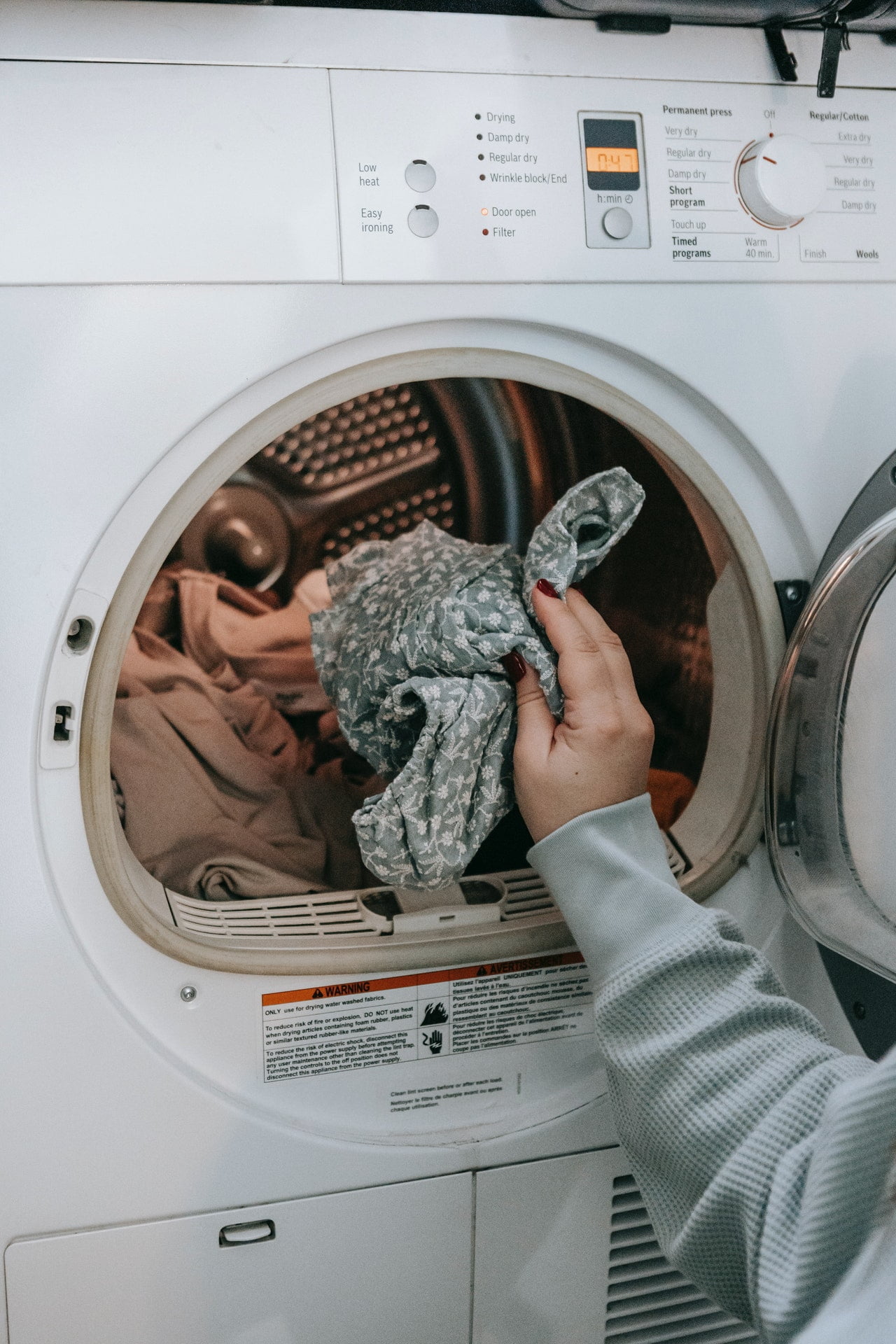
What’s more, the fragrances used in dryer sheets are also well known to irritate the skin (after all, they’re the most toxic part of laundry detergents), which makes them a real concern for families with eczema or other skin sensitivities.
Dryer balls vs dryer sheets: which is best for your laundry?
So what is the alternative? Whether you’re trying to minimize your environmental impact or are just concerned about how many chemicals you’re using in your home, you’ll be delighted to know that dryer sheets aren’t the only choice.
Introducing our favorite drying aid: the humble dryer balls.
What are dryer balls?
Dryer balls are a 100% natural alternative to dryer sheets. Made from natural materials, such as wool (although, in some cases, you can find them made from plastic), they are designed to bounce around inside your dryer, speeding up the drying process and also preventing static.
They’re also fragrance-free or you can incorporate your own smell by adding a couple of drops of essential oils to the balls before you pop them in your dryer. Better still, they can remove pet hair from your clothes.
Dryer balls: do they actually work?
Yes and yes! The size of a tennis ball, dryer balls are an extremely handy laundry addition and you typically just need three per load for them to work at their best. As the dryer does its stuff, the balls move around, creating air pockets between items to stop clothes from clumping and wrinkling.
These air pockets also help fluff up and soften your clothes, as well as speed up drying time. Dryer balls can actually reduce the amount of time your clothes need in the dryer by 30% – which could save you significantly on the cost of the electricity needed to power your dryer.
They’re also great for stopping static. During the cycle, drying balls made from wool absorb moisture from the laundry, which they then release to prevent overdrying – one of the principal causes of static.
While dryer balls come in wool and plastic versions, we’ve found wool ones to be the kindest to the environment – after all, all plastics are made using fossil fuels and also contribute to the release of microplastics: little scraps of microscopic plastics that shed from the balls when they are in your tumble dryer. These are a huge worry for the environment and human health, too.
As a result, we recommend wool dryer balls, which can last up to 1,000 washes – or at least a couple of years’ worth of laundry, depending on how often you put on a load!
Once the wool starts loosening and they look in need of a bit of TLC, it’s also possible to refresh your wool dryer balls to help them last even longer. When they’ve reached the end of their life, you can just pop them in your compost bin and they’ll biodegrade back into the soil.
If you’re a vegan, you can find wool dryer balls (like these ones) that use 100% organic New Zealand wool that is cruelty-free.
The benefits and disadvantages of dryer sheets and dryer balls
Still not sure whether dryer sheets or dryer balls are better? Here’s a quick run-through of the benefits of both.
The pros and cons of dryer sheets
Pros:
- Help soften and add fragrance to clothes as they dry
- Reduce static in laundry
Cons:
- Made from nonwoven polyester, which is derived from fossil fuels and contributes to the release of greenhouse gasses
- Single-use and can not biodegrade; will end up in landfill for 500 years
- 72.1% of fragrances used in dryer sheets and fabric softeners are considered a hazard to health or the environment by the Environmental Working Group’s Guide to Healthy Cleaning
- The chemicals used in dryer sheets stay on your clothes and can find their way into waterways when they are next washed, causing damage to aquatic life
- The fragrances used in dryer sheets can cause skin irritation
The pros and cons of dryer balls
Pros:
- They soften and reduce static in your laundry and can be used with a couple of drops of essential oils to add a natural, non-toxic fragrance to your clothes
- Wool dryer balls are significantly kinder to the environment than dryer sheets, as they’re 100% natural, organic, and can biodegrade back into the soil at the end of their life
- They can save your money: one set of wool dryer balls can last 1,000 washes – or over three years of laundry
- They also reduce your electricity bill by reducing the time needed for laundry to tumble dry by 30%
Cons:
- Plastic dryer balls can release microplastics, which are known to damage the environment and be dangerous to human health
- Wool dryer balls aren’t vegan, however, ours are made from 100% organic New Zealand wool that is cruelty-free.
Verdict
If you’re concerned about the environmental impact of your laundry or worried about exposing your family to chemicals, then there’s a clear winner when it comes to comparing dryer balls with dryer sheets.
Dryer balls – and particularly those made from organic, cruelty-free wool – are 100% natural and aren’t contributing to the release of greenhouse gasses. What’s more, they can be home-composted when they hit the end of their life.
They’ll also save you money and, because they don’t contain any of the nasty chemicals found in conventional fabric softeners or drying sheets, they’ll be kinder to your family’s skin.
Got more questions? Check out our wool dryer balls FAQ page.
